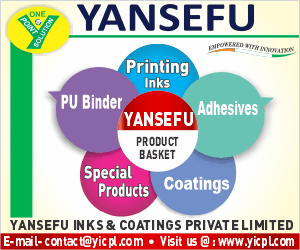
Ahead of INC-3, street vendors call out FMCGs for failing to meet their own plastic reduction targets and ask the Government of India to support an effective Global Plastics Treaty to lead the country out of the plastics crisis
As governments, industry, academia, civil society and scientists gather in Nairobi, Kenya for the Third Intergovernmental Negotiating Committee for a Global Plastics Treaty, a new study shows informal street vendors in India make a compelling business case for reuse systems to significantly reduce all plastic production in order to stop plastic pollution of every kind, not just single-use plastics.
The study by Zero Waste Europe, Searious Business, and National Hawker Federation (NHF) found that, in Kolkata alone, transitioning about 80,000 street food vendors to a reusable system, would reduce plastic waste by more than 86%; create more than 2,250 jobs; and give a return on investment of 21% and a payback period of 2.3 years. In Delhi, the transition of 99,000 street food vendors to a reusable system is even more economically favorable, thanks to the economies of scale. While the use of reusable steel can be as profitable as reusable plastic, it requires a higher deposit to compensate for the increased initial cost of steel.
Single-use plastic consumption has exploded in recent years, creating a global crisis that impacts nature, people, and the climate. Over 99% of plastics are made of fossil fuels, and if the plastic industry were a country, it would be the world’s fifth largest greenhouse gas emitter. There are more than 16,000 chemicals used in plastics with 25% classified as hazardous, with one estimate that the lifetime cost of plastic produced in 2019 alone is USD 3.7 trillion, or more than the GDP of India in 2022. No plastic can be classified as safe.
NHF demands a just transition for street vendors from single-use plastics to reuse systems. It also urges the Indian delegation at INC3 to join other progressive delegations, scientists, and civil society organisations in calling for a Global Plastics Treaty that establishes strong production controls; is legally binding; time-bound; sets ambitious targets and system guidelines to implement reuse and refill to accelerate the transition away from single-use plastics; and actions a just transition to safer and more sustainable livelihoods for workers and communities across the plastics supply chain.
Reuse systems could reverse the harmful throwaway culture that has plagued our society for decades. Reuse systems have the unique opportunity to lead to public health benefits, as well as economic, social climate justice. Street vendors in India provide more than 600 million affordable, nutritious meals every day. They can steward large-scale reuse practices with the support of the government. Reuse in street vending would provide city and state governments with new ways of serving the public and innovative business models, ushering in a meaningful just transition for workers across the plastic lifespan.
Saktiman Ghosh, general secretary of National Hawker Federation (NHF) said, “Street vendors face the hazards of climate change every day, and clearly understand the role of plastics in the triple threats of climate, biodiversity, and pollution. We wholeheartedly embrace reuse systems and ask the Government of India to provide an enabling regulatory framework and infrastructure.”
Joan Marc Simon, director-founder of Zero Waste Europe, said, “Evidence shows that reuse systems in street-vending are the most sensible and economic way to prevent waste and strengthen the local economy. Yet, to be effective they need to be rolled out at scale and this can only happen if public institutions provide the right legal framework. We call India, Europe, and any other country or region committed to moving away from plastic pollution to pass legislation in favor of reuse systems.”
Willemijn Peeters, CEO of Searious Business, said, “The numbers in India are so astronomical, it’s hard to visualize. So many vendors, so many people, so much packaging. If there is a compelling business case for reusable packaging in such a complex scenario, it can work anywhere. It’s simple, reuse adds up.”
Mecanzy Dabre, deputy general secretary of NHF said, “By the industry’s own estimates India’s single-use plastic ban targets only 2 – 3% of total plastic produced. The ban conspicuously excludes plastic packaging used by FMCGs, such as sachets and other multilayered packaging, which accounts for about 50% of the problem. If street vendors can transition all their internal operations to reusables, the plastic waste still generated would be due to packaging choices made by FMCGs.”
Satyarupa Shekhar, an independent plastics activist, pointed to the glaring mismatch between the pledges made by the world’s top plastic polluters and their actions. “‘The Global Commitment Five Years In: Perspective On Progress and 2023 Progress report show how FMCGs have failed to bring down virgin plastic use meaningfully, making little to no progress to expand reuse.” She added, “Unilever and Nestle repeatedly say that reuse is economically prohibitive, but we now have Indian street vendors make the best business case for large-scale reuse systems – at a fraction of the marketing budgets of these FMCGs.”







